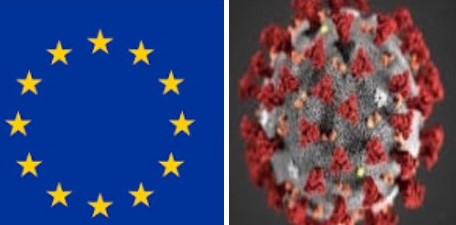By William Selmah, wselmah@gmail.com
The European Commission and the High Representative has rolled out what it says is a robust and targeted EU response to support partner countries’ efforts in tackling the coronavirus pandemic.
The plan centers largely on addressing the immediate health crisis and resulting humanitarian needs, strengthening partner countries’ health, water and sanitation systems and their research; as well as preparedness capacities to deal with the pandemic, as well as mitigating the socioeconomic impact.
To reinforce these actions, the EU says it will secure financial support to partner countries amounting to more than €15.6 billion from existing external action resources. “Together with our partners, we are making sure that the substantial EU funding already allocated to them is targeted to help deal with the impact of coronavirus,” a statement read.
From the overall package, €3.25 billion are channeled to Africa, including €1.19 billion for the Northern African neighborhood countries.
The EU is securing in total €3.07 billion for the whole neighborhood – €2.1 billion for the South and €962 million for the Eastern Partner countries – and €800 million for the Western Balkans and Turkey.
In addition, the overall package includes another €1.42 billion in guarantees for Africa and the neighborhood from the European Fund for Sustainable Development (EFSD).
The EU will support Asia and the Pacific with €1.22 billion, another €291 million will go for the Africa, Caribbean and Pacific region, €918 million to support our partners in Latin America and the Caribbean and €111 million to support Overseas Countries and Territories.
The President of the European Commission, Ursula von der Leyen pointed out that the “the virus knows no borders”.
Ursula von der Leyen: “This global challenge needs strong international cooperation. The European Union is working tirelessly to fight the pandemic. We all know that only together we can stop the worldwide spread of the coronavirus. To that end, the EU will soon convene a virtual pledging event to help mobilize the necessary funding and support the World Health Organization to assist the most vulnerable countries.”
The High Representative/Vice-President Josep Borrell, similarly asserted that the coronavirus pandemic requires united, global action in response. He recounted the important role EU countries are playing to contain the pandemic which has claimed thousands of lives globally.
He said “while we are doing everything we can to provide support of our citizens, we also need to assist our partners in our direct neighborhood and beyond to address the impact it will have on their livelihoods, stability and security, as their problems are our problems. This is a global fight that we will either win or lose together”
Also speaking at the unveiling of the European Commission’s global strategy to tackle the COVID-19 outbreak was the Commissioner for International Partnerships, Jutta Urpilainen, who said EU countries remain unsafe as long as the disease poses threat to any part of the world, adding, this is the core of international cooperation and partnerships.
The EU’s response follows a ‘Team Europe‘ approach, aimed at saving lives by providing quick and targeted support to partners to face this pandemic. It combines resources from the EU, its Member States and financial institutions, in particular the European Investment Bank and the European Bank for Reconstruction and Development, to support partner countries and address their short-term needs, as well as the longer-term structural impacts on societies and the economy.
The first Team Europe packages are already being implemented in the immediate neighborhood: the Western Balkans, in the East and to the South.
The EU, as global actor and major contributor to the international aid system, will promote a coordinated multilateral response, in partnership with the United Nations, International Financial Institutions, as well as the G7 and the G20.
In practice, the global response package will consider the Response Plans of the World Health Organization and the United Nations, as well as the appeal of the Red Cross and Red Crescent Movement to boost emergency preparedness and response in countries with weaker health systems and those dealing with humanitarian crises.
It seeks to also provide immediate humanitarian support to affected countries, in particular in health, water, sanitation and hygiene (WASH) and logistics; supporting increased production in Europe of personal protective equipment and medical devices to meet urgent needs in Europe and in partner countries and organizing the supply of in-kind assistance to affected countries through the Union Civil Protection Mechanism.
Other focus areas of the global response also include guarantee and liquidity provisions to local banks via International Financial Institutions and European Development Finance Institutions, supported by the European Fund for Sustainable Development; supporting global efforts to combat export restrictions and ensure that supply chains remain intact, notably for essential medical supplies and pharmaceuticals, among others.

